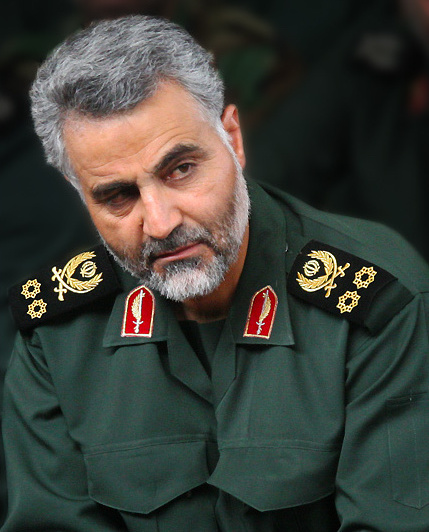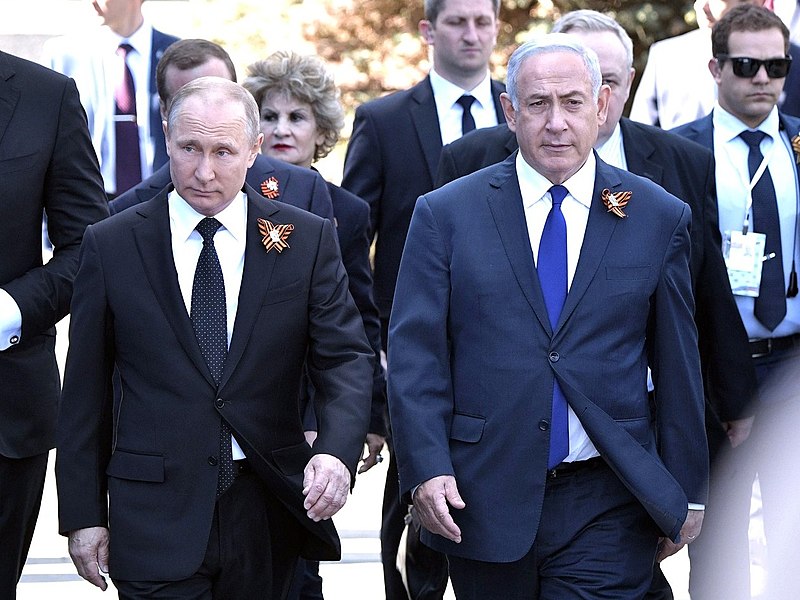
Image by sayyed shahab-o- din vajedi
Russia has only one overriding objective by which all its actions are guided: to retain its superpower status. Unfortunately for Russia’s president Putin, Russia cannot be considered a superpower by most categories. Looking at nominal GDP per capita, Russia is located at the 60 spot (Israel is 20), wedged between the well-known global powers of Romania and Costa Rica. In purchasing power terms (PPP), Russia is number 48, right between the Seychelles and Greece, while Israel is 38. Both data points are for 2017, according to the International Monetary Fund. Unlike China, Russia does not have a huge population that would bring down its per capita GDP standings; on the contrary, it has a population roughly equal to that of Japan, about 150 million and shrinking rapidly. In the recently published Bloomberg Innovation index, Russia was at number 25 among the top 60 countries, while Israel was 5 and America 8. Most Russian non-military industries are branch offices of Western companies, from Mercedes Benz to Siemens. Economically, population-wise, technologically, Russia can lay no claim on superpower status. Russian claim to superpowerdom thus rests on three pillars and on them only:
- Russia’s military might, and specifically its large and modern nuclear arsenal, its advanced military industries, and its space program.
- Russia’s vast size and vast natural resources.
- Russia’s ability to influence world events by leveraging Items 1 and 2 on this list.
Being a superpower, remaining a superpower, is essential to Russia’s very soul, because this status dates all the way back to early 18th century when it was won, with enormous sacrifice, by Peter the Great and further cemented by his soulmate Catherine the Great at the time of the American Revolution. Since then, Russia managed to repel Ottoman and European attacks on its superpower status during the Napoleonic wars and again during the Crimean War in the 19th century and during the first and second world wars in the 20th. It was only the crushing loss in the Cold War in the late 20th century with the resulting breakup of the latest embodiment of the Russian Empire, the Soviet Union, that Russia’s superpowerdom received a truly crippling blow. President Obama’s assertion that Russia was a “regional power” must have stung like hell in the halls of Kremlin and around Russia’s kitchen tables alike.
President Trump, with his energy exploration friendly policies and significant plays to keep oil prices down by strengthening the alliance with Saudi Arabia and trying to install a friendly regime in Venezuela, has managed to make America energy-independent and at the same time keep world oil prices low, far below the level at which Russia can make money from its vast oil reserves. These moves, as well as Trump’s power play to wean both Eastern and Western Europe from their dependence on Russia natural gas, have neutered the second pillar of Russian superpowerdom, its status as an oil and gas giant. Trump’s vast increases in the Pentagon budget to levels roughly ten times of what Russia can afford while walking the thin line of avoiding (just) popular revolt due to pension cuts and other belt-tightening measures, Trump’s across the board investments in the modernization of America’s armed forces, both conventional and nuclear, and finally Trump’s aggressive entry into the “last frontier” of military conflict – space, are going a long way towards undercutting the first pillar: military supremacy.

Боевая работа российской авиации в Сирии
As the first two pillars of Russia’s superpowerdom are being successfully undermined by Trump, it has no choice but to shift the weight of its strategy to the third one: global influence. This is a theater of operations that is full of targets of opportunity for Russia, since Trump’s natural disposition, as well as that of his base of supporters, is to reduce, rather than increase America’s foreign military footprint abroad. The choicest, the tastiest target within this theater of global influence is Syria. For America, Syria is exceedingly unattractive; poor in both human and natural resources, mired in ethnic and religious civil war, caught between the deadly foes of Israel and Iran, ground zero for Shia-Sunni strife, eyed with suspicion by Turkey because of its large Kurd population, Syria is a mess America wants nothing to do with. For Russia, in contrast, Syria is one tasty morsel; it is the only country with exposure to the Mediterranean Sea that would ever dream of inviting Russia to establish on its shores a major deep water port for the Russian Navy. This alone is everything. The Black Sea, in the post-Soviet era, with Ukraine, Romania, Bulgaria and many Balkan countries either firmly in the Western sphere of influence or at best neutral, is hardly a Russian playground anymore. NATO member Turkey, a country that, best efforts by many tsars notwithstanding, still controls the Bosporus straits and thus the access to the Mediterranean Sea can prevent Russian fleets from entering its water in case of conflict. The upshot of this is that Russia today would not have its ever-coveted deep-sea year-round warm-water port if it weren’t for Syria’s invitation to build and operate one on its shores.
In Syria, none of the dancers are dancing to the same tune: Assad wants to survive, but the Syrian people want him out, so he must rely on Russia and Iran to keep him on the throne. Russia wants him to survive, needs him to survive, so it can keep its warm-water naval base in the Mediterranean. So does Iran, but for a different reason: Iran wants Syria as a forward base of operations for its holy war against Israel. Iran’s war against Israel, though colored in eschatology and religious animus, is also a simple play for regional hegemony; a position that is rapidly being filled by the technologically, militarily, and economically advanced Jewish State. The Russians, who after all have their own problems with Islamic extremism, do not want a powerful Iran on the shores of the Mediterranean. Israel and Russia are enjoying a renaissance of mutual relations with Israel one of the few destinations around the globe that pariah-state Russians can visit without a visa. Many of the million or so Jews who emigrated from Russia to Israel in the early 1990’s still maintain their Russian citizenship. The two countries are more natural allies than adversaries. At the same time, Russia does not have the manpower, the budget, or the Islamic street cred to keep propping up the tottering Assad regime; only Iran can fill that role. So perversely, in the Assad-Iran-Russia menage a trois, it is Russia who is holding the weakest hand. It needs Assad to survive, but it knows that he can only survive as long as his throne is propped by the ayatollahs. Of course, they know it too; that is why they break every promise they make to the Russians and push the region towards open-ended conflict.

Iranians have promised Russia to stay at least 80 kilometers (50 miles) away from the Israeli-Syrian border on the Golan heights. Recently, Kassem Suleiman, the notorious commander of the Iranian Revolutionary Guards came as close as 45 kilometers from that border and during his trip prepared the missile strike against Israel, the one that prompted a fairly aggressive response not only against Iranian interests, but also Syrian air defenses. Russia’s initial response, which has not condemned Israel for the attack, angered Assad, who pressured Putin into a second, more robust round. Though still at a staffer level, Russia warned Israel to avoid “random” attacks against Syria. This is a warning that, as everyone knows, Israel cannot heed, simply because the de-facto occupation of Syria by Iran would put Israel’s very survival at risk. While Russia is culturally, emotionally, even historically much closer to Israel than to Iran, the geopolitical reality is such that Syria is Russia’s last stand as a superpower; without significant long-term military presence in Syria, Russia loses the war and becomes, at best, a regional power with nukes, a la North Korea or Pakistan. This is a fate worse than death to Putin and to many (though not all) Russians, because it would be the final nail in the coffin of their three-century old effort to establish themselves as equals to the West; it would be the end of Russia “third way” between Europe and Asia, a full retreat from empire back to a landlocked forest kingdom, from Russia to Muscovy.
Upon the altar of avoiding this fate, Russia will sacrifice everything, including Israel. In order to retain the flimsiest of claims to superpower status, Russia will drag the region and the world into a full-out war. In Syria, two opposing forces could be accommodated; three are two many. Israel will not give up its very existence and allow Iran to open a direct front against it in Syria. Iran will not give up its regional hegemony ambitions, because it’s the only thing their brutal theocracy can hope to deliver to its long-suffering people. Russia will not stop propping the Assad regime, the linchpin to all the evil in Syria, and allow the country to begin healing under a legitimately elected representative government, because such a government would likely ask Russian military forces to leave the country and go back home, putting an end to Russia’s superpower ambitions. There is no combination that solves this puzzle, no amount of patience and goodwill will untie this Gordian knot. When diplomacy fails, it continues by other means, and these other means are the hounds of war.

